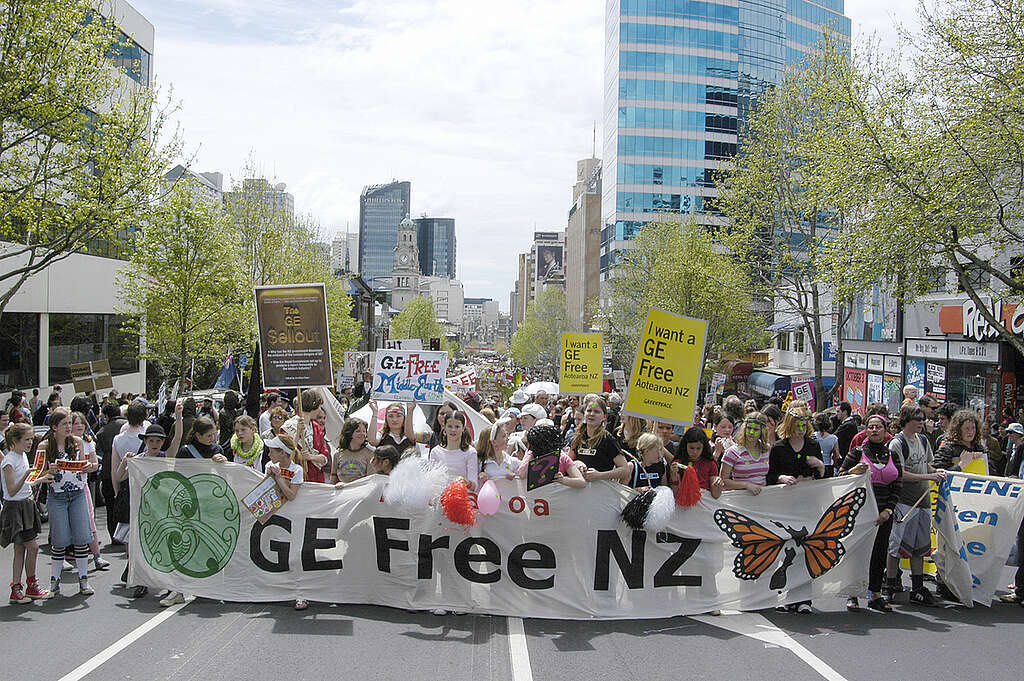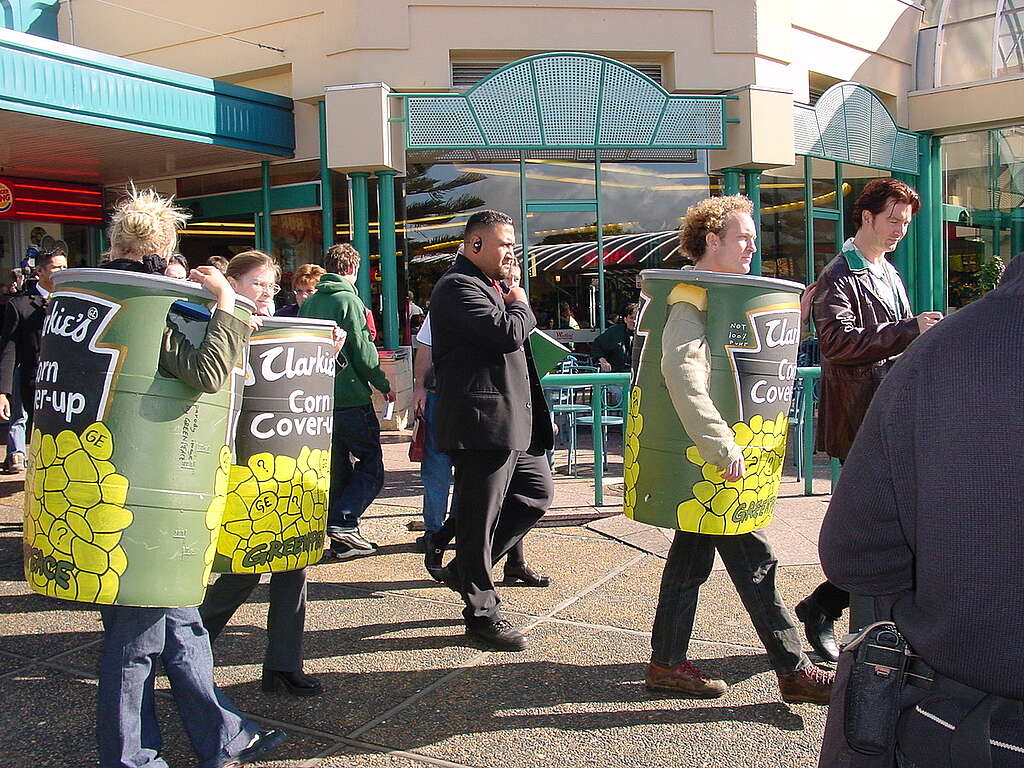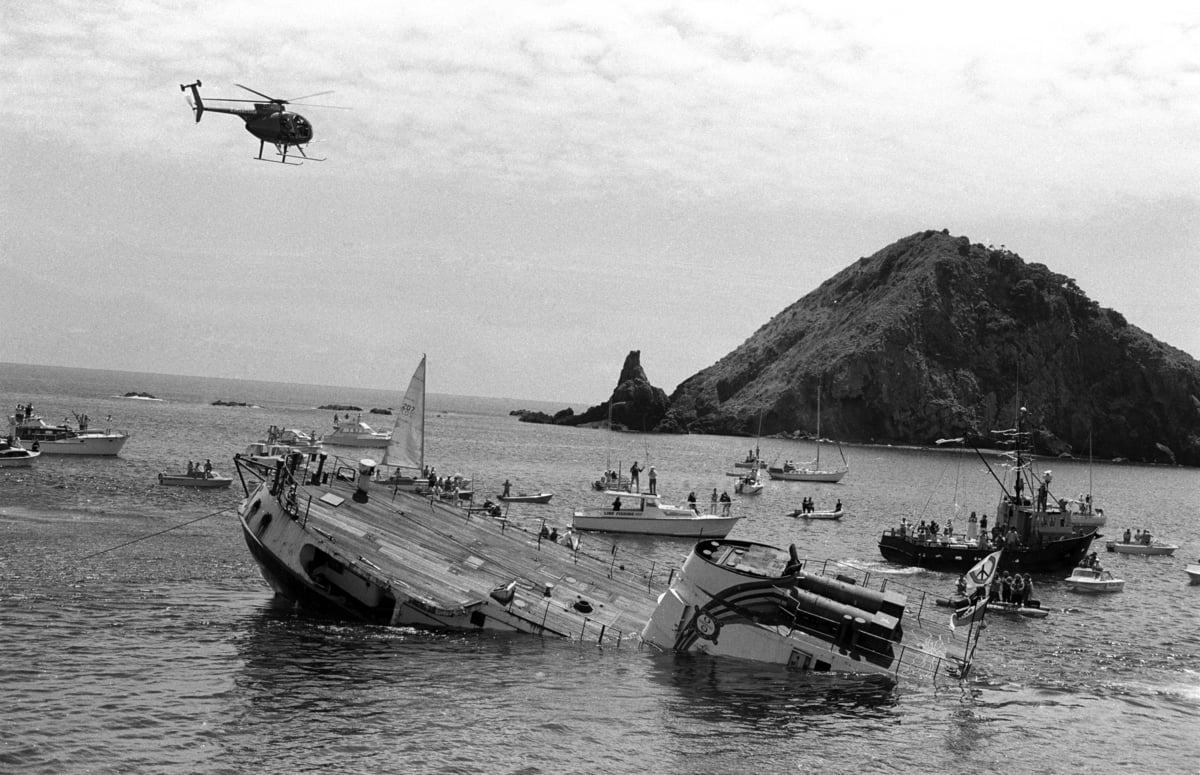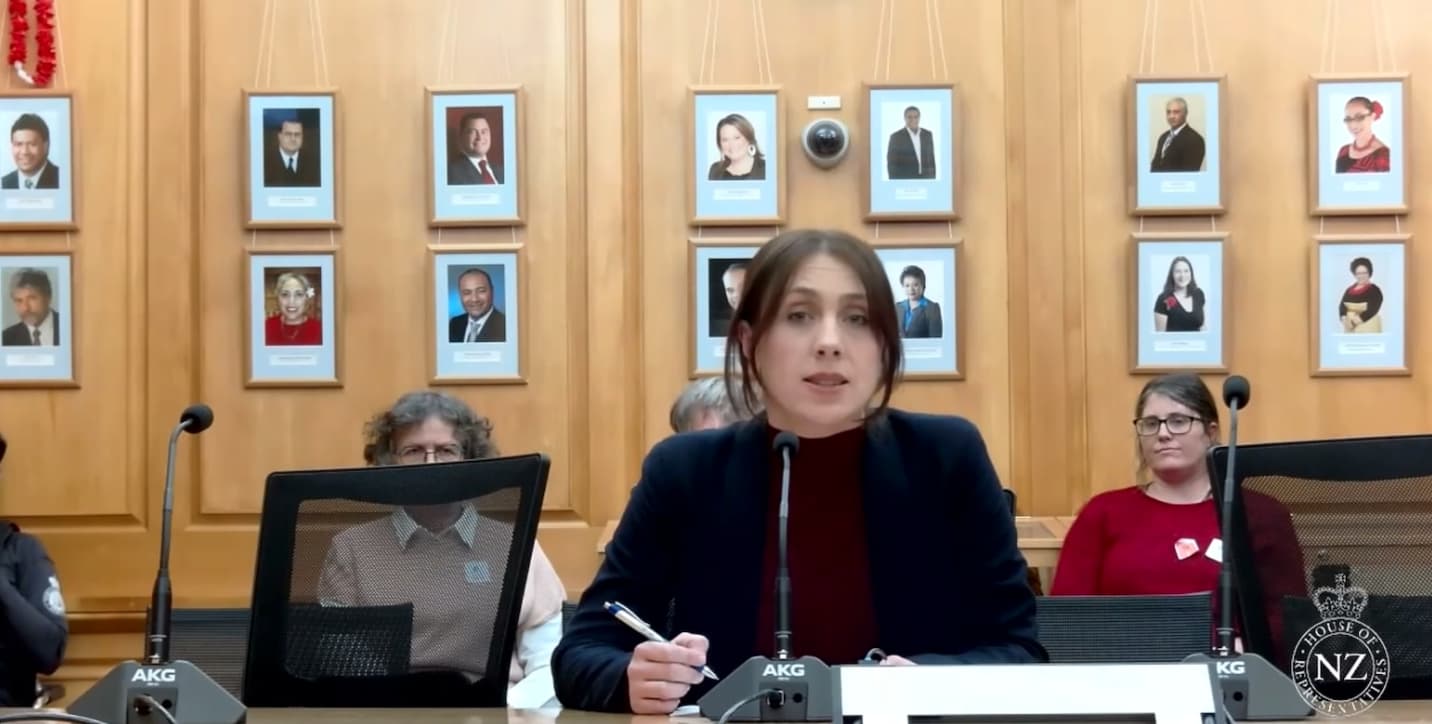One of the first big protests I ever went on was the GE Free march up Queen Street in 2001. That was soon after I joined Greenpeace, and it was our main focus for some years to come.

Together with a growing GE Free movement, we took on some big companies like Tegal Chicken, the supermarket duopoly, Nestle, McDonald‘s, KFC, and, of course, the Government of the day led by Helen Clark.
We opposed field trials of GE crops and pine trees, and we opposed GE ingredients in the food that we eat.

Genetic Engineering was always a risky experiment with our health and with the environment, and the only ones that could benefit from that were the big corporations like Monsanto. It was always about corporate profit.
We published the GE Free Food Guide, we did submissions and letter-writing, direct action and petitions and two more big protest marches – and in the end, we won.
First, there was a temporary ban (the GE moratorium) and a Royal Commission. Then, even though the Government didn’t have the courage to make it a permanent ban, we had so successfully mobilised people against Genetic Engineering that the Government was forced to strengthen regulations around GE so much that for the next twenty-five years, Aotearoa New Zealand has been GE Free.
NZ’s GE Free Status is now under threat
The Luxon Government has introduced dangerous new legislation called the Gene Technology Bill that could significantly weaken the regulations that protect us from Genetic Engineering.
Do yours here, and then pass on the link to your friends and family.
Once again, it’s about corporate profit, but there’s a new dimension now. The dairy industry sees the promise of GE as one more way to delay real action on reducing emissions. The false promise of GMOs that magically stop methane emissions from cows is one of their favourite excuses for not doing what we all know needs to be done.
There are many reasons to keep Aotearoa GE Free, but here’s three of the main ones.
Environmental risk
GMOs could disrupt ecosystems, harm biodiversity, and lead to unintended consequences like the creation of superweeds and pesticide resistance at the expense of native species at a time when we already face a biodiversity crisis.
Health risks
The long-term effects of GMOs on human health are not fully understood, and releasing them into the food chain and the environment could pose risks such as allergic reactions, antibiotic resistance, or other unforeseen health impacts.
Lack of control
Once GMOs are released into the environment, they cannot be recalled. Cross-contamination of non-GMO crops and wild plants could occur, leading to irreversible changes in agriculture and ecosystems, with farmers and consumers losing control over what they grow and eat.
The economic advantage of being GE Free
Being a GE Free producer is a competitive advantage for New Zealand. Our food growers and producers benefit from that with higher returns on produce that they export. Losing it could mean serious loss of income for them and the country.
Example submission
You can use the example submission below and personalise it via our quick submission builder, or take it straight to the Government’s submission form.
In the early 2000s, the GE Free NZ movement successfully fended off the release of Genetically Engineered organisms into our food and the environment. We insisted on a precautionary approach to the new technology and advocated for a vision of organic and sustainable food production.
Since then, Aotearoa New Zealand has effectively been free of genetically modified organisms in the environment. Our strict regulations have prevented the contamination of nature and food ever since and our GE Free producer status is of great economic value to our food producers.
Genetic Engineering is an unnecessary technology that presents significant risk. Hence, to protect nature, people’s health, and the economy, we should retain the precautionary approach and preserve the robust regulation we currently have regarding GMOs in Aotearoa.
Currently, the Hazardous Substances and New Organisms Act requires all GMOs to be regulated. The Gene Technology Bill empowers a single person, the ‘Regulator’, to exempt from regulation whatever gene technologies and GMOs they deem to be safe. This means if the bill is passed in its current form, many types of GMOs could be released into the environment with no public notification and few if any, safeguards.
Environmental risk
Without strict regulations, GE plants, animals or microorganisms released into the environment could disrupt primary production, local ecosystems and biodiversity in unpredictable ways.
In the US, where crops engineered to tolerate glyphosate (Roundup) are widespread, there has been an explosion in herbicide-resistant weeds – superweeds. That has not happened here in Aotearoa.
The Bill poses significant risks to the indigenous species of Aotearoa and to our biodiversity at a time when we and the world face a biodiversity and extinction crisis.
GMOs are a block to climate action
The dairy industry has long used the false promise of gene technology to delay action to reduce methane emissions. The dairy industry is New Zealand’s worst climate polluter and as-yet unproven genetically engineered methane inhibitors will not solve that problem.
The problem is simple, and the solution is simple too. New Zealand has way too many cows, fed with imported feed like rainforest-destroying palm kernel and grass grown with vast quantities of synthetic nitrogen fertiliser.
The solution is to significantly reduce cow numbers, end the use of palm kernel and phase out synthetic nitrogen fertiliser. These are things we know will substantially reduce climate pollution.
But instead of taking measures that actually work to cut emissions, agribusiness tells us that magical GE solutions, that are always on the horizon, will solve the climate problem.
Te Tiriti and te ao Māori
The Bill marginalises Māori as it does the public and wider community.
The Bill is inconsistent with the Crown’s responsibility to protect Māori interests in relation to indigenous flora and fauna, cultural knowledge, and practices. It would further undermine Te Tiriti o Waitangi by limiting Māori input and decision-making power regarding resources and taonga over which they hold rangatiratanga.
I oppose the Gene Technology Bill and recommend it be rejected in its entirety.
Read the Greenpeace submission on Gene Technology Bill.



